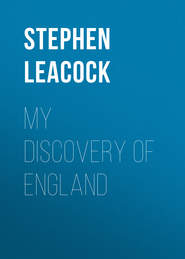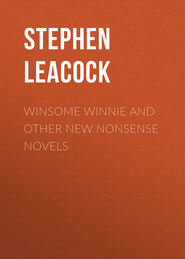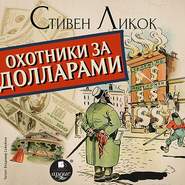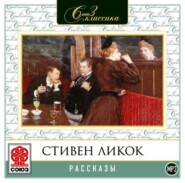По всем вопросам обращайтесь на: info@litportal.ru
(©) 2003-2024.
✖
Frenzied Fiction
Автор
Год написания книги
2019
Настройки чтения
Размер шрифта
Высота строк
Поля
“I will,” I said.
“Very good. Remember also that in order to mask your purpose you must constantly be seen with the most fashionable and most beautiful women of the American capital. Can you do this?”
“Can I?” I said.
“You must if need be”—and the Baron gave a most significant look which was not lost upon me—“carry on an intrigue with one or, better, with several of them. Are you ready for it?”
“More than ready,” I said.
“Very good. But this is only a part. You are expected also to familiarize yourself with the leaders of the great financial interests. You are to put yourself on such a footing with them as to borrow large sums of money from them. Do you object to this?”
“No,” I said frankly, “I do not.”
“Good! You will also mingle freely in Ambassadorial and foreign circles. It would be well for you to dine, at least once a week, with the British Ambassador. And now one final word”—here Gestern spoke with singular impressiveness—“as to the President of the United States.”
“Yes,” I said.
“You must mix with him on a footing of the most open-handed friendliness. Be at the White House continually. Make yourself in the fullest sense of the words the friend and adviser of the President. All this I think is clear. In fact, it is only what is done, as you know, by all the masters of international diplomacy.”
“Precisely,” I said.
“Very good. And then,” continued the Baron, “as soon as you find yourself sufficiently en rapport with everybody, or I should say,” he added in correction, for the Baron shares fully in the present German horror of imported French words, “when you find yourself sufficiently in enggeknupfterverwandtschaft with everybody, you may then proceed to advance your peace terms. And now, my dear fellow,” said the Baron, with a touch of genuine cordiality, “one word more. Are you in need of money?”
“Yes,” I said.
“I thought so. But you will find that you need it less and less as you go on. Meantime, good-bye, and best wishes for your mission.”
Such was, such is, in fact, the mission with which I am accredited. I regard it as by far the most important mission with which I have been accredited by the Wilhelmstrasse. Yet I am compelled to admit that up to the present it has proved unsuccessful. My attempts to carry it out have been baffled. There is something perhaps in the atmosphere of this republic which obstructs the working of high diplomacy. For over five months now I have been waiting and willing to dine with the American Cabinet. They have not invited me. For four weeks I sat each night waiting in the J. hotel in Washington with my suit on ready to be asked. They did not come near me.
Nor have I yet received an invitation from the British Embassy inviting me to an informal lunch or to midnight supper with the Ambassador. Everybody who knows anything of the inside working of the international spy system will realize that without these invitations one can do nothing. Nor has the President of the United States given any sign. I have sent ward to him, in cipher, that I am ready to dine with him on any day that may be convenient to both of us. He has made no move in the matter.
Under these circumstances an intrigue with any of the leaders of fashionable society has proved impossible. My attempts to approach them have been misunderstood—in fact, have led to my being invited to leave the J. hotel. The fact that I was compelled to leave it, owing to reasons that I cannot reveal, without paying my account, has occasioned unnecessary and dangerous comment. I connect it, in fact, with the singular attitude adopted by the B. hotel on my arrival in New York, to which I have already referred.
I have therefore been compelled to fall back on revelations and disclosures. Here again I find the American atmosphere singularly uncongenial. I have offered to reveal to the Secretary of State the entire family history of Ferdinand of Bulgaria for fifty dollars. He says it is not worth it. I have offered to the British Embassy the inside story of the Abdication of Constantine for five dollars. They say they know it, and knew it before it happened. I have offered, for little more than a nominal sum, to blacken the character of every reigning family in Germany. I am told that it is not necessary.
Meantime, as it is impossible to return to Central Europe, I expect to open either a fruit store or a peanut stand very shortly in this great metropolis. I imagine that many of my former colleagues will soon be doing the same!
II. Father Knickerbocker: A Fantasy
It happened quite recently—I think it must have been on April the second of 1917—that I was making the long pilgrimage on a day-train from the remote place where I dwell to the city of New York. And as we drew near the city, and day darkened into night, I had fallen to reading from a quaint old copy of Washington Irving’s immortal sketches of Father Knickerbocker and of the little town where once he dwelt.
I had picked up the book I know not where. Very old it apparently was and made in England. For there was pasted across the fly-leaf of it an extract from some ancient magazine or journal of a century ago, giving what was evidently a description of the New York of that day.
From reading the book I turned—my head still filled with the vision of Father Knickerbocker and Sleepy Hollow and Tarrytown—to examine the extract. I read it in a sort of half-doze, for the dark had fallen outside, and the drowsy throbbing of the running train attuned one’s mind to dreaming of the past.
“The town of New York”—so ran the extract pasted in the little book—“is pleasantly situated at the lower extremity of the Island of Manhattan. Its recent progress has been so amazing that it is now reputed, on good authority, to harbour at least twenty thousand souls. Viewed from the sea, it presents, even at the distance of half a mile, a striking appearance owing to the number and beauty of its church spires, which rise high above the roofs and foliage and give to the place its characteristically religious aspect. The extreme end of the island is heavily fortified with cannon, commanding a range of a quarter of a mile, and forbidding all access to the harbour. Behind this Battery a neat greensward affords a pleasant promenade, where the citizens are accustomed to walk with their wives every morning after church.”
“How I should like to have seen it!” I murmured to myself as I laid the book aside for a moment. “The Battery, the harbour and the citizens walking with their wives, their own wives, on the greensward.”
Then I read on:
“From the town itself a wide thoroughfare, the Albany Post Road, runs meandering northward through the fields. It is known for some distance under the name of the Broad Way, and is so wide that four moving vehicles are said to be able to pass abreast. The Broad Way, especially in the springtime when it is redolent with the scent of clover and apple-blossoms, is a favourite evening promenade for the citizens—with their wives—after church. Here they may be seen any evening strolling toward the high ground overlooking the Hudson, their wives on one arm, a spyglass under the other, in order to view what they can see. Down the Broad Way may be seen moving also droves of young lambs with their shepherds, proceeding to the market, while here and there a goat stands quietly munching beside the road and gazing at the passers-by.”
“It seems,” I muttered to myself as I read, “in some ways but little changed after all.”
“The town”—so the extract continued—“is not without its amusements. A commodious theatre presents with great success every Saturday night the plays of Shakespeare alternating with sacred concerts; the New Yorker, indeed, is celebrated throughout the provinces for his love of amusement and late hours. The theatres do not come out until long after nine o’clock, while for the gayer habitues two excellent restaurants serve fish, macaroni, prunes and other delicacies till long past ten at night. The dress of the New Yorker is correspondingly gay. In the other provinces the men wear nothing but plain suits of a rusty black, whereas in New York there are frequently seen suits of brown, snuff-colour and even of pepper-and-salt. The costumes of the New York women are equally daring, and differ notably from the quiet dress of New England.
“In fine, it is commonly said in the provinces that a New Yorker can be recognized anywhere, with his wife, by their modish costumes, their easy manners and their willingness to spend money—two, three and even five cents being paid for the smallest service.”
“Dear me,” I thought, as I paused a moment in my reading, “so they had begun it even then.”
“The whole spirit of the place”—the account continued—“has recently been admirably embodied in literary form by an American writer, Mr. Washington Irving (not to be confounded with George Washington). His creation of Father Knickerbocker is so lifelike that it may be said to embody the very spirit of New York. The accompanying woodcut—which was drawn on wood especially for this periodical—recalls at once the delightful figure of Father Knickerbocker. The New Yorkers of to-day are accustomed, indeed, to laugh at Mr. Irving’s fancy and to say that Knickerbocker belongs to a day long since past. Yet those who know tell us that the image of the amiable old gentleman, kindly but irascible, generous and yet frugal, loving his town and seeing little beyond it, may be held once and for all to typify the spirit of the place, without reference to any particular time or generation.”
“Father Knickerbocker!” I murmured, as I felt myself dozing off to sleep, rocked by the motion of the car. “Father Knickerbocker, how strange if he could be here again and see the great city as we know it now! How different from his day! How I should love to go round New York and show it to him as it is.”
So I mused and dozed till the very rumble of the wheels seemed to piece together in little snatches. “Father Knickerbocker—Father Knickerbocker—the Battery—the Battery—citizens walking with their wives, with their wives—their own wives”—until presently, I imagine, I must have fallen asleep altogether and knew no more till my journey was over and I found myself among the roar and bustle of the concourse of the Grand Central.
And there, lo and behold, waiting to meet me, was Father Knickerbocker himself! I know not how it happened, by what queer freak of hallucination or by what actual miracle—let those explain it who deal in such things—but there he stood before me, with an outstretched hand and a smile of greeting, Father Knickerbocker himself, the Embodied Spirit of New York.
“How strange,” I said. “I was just reading about you in a book on the train and imagining how much I should like actually to meet you and to show you round New York.”
The old man laughed in a jaunty way.
“Show me round?” he said. “Why, my dear boy, I live here.”
“I know you did long ago,” I said.
“I do still,” said Father Knickerbocker. “I’ve never left the place. I’ll show you around. But wait a bit—don’t carry that handbag. I’ll get a boy to call a porter to fetch a man to take it.”
“Oh, I can carry it,” I said. “It’s a mere nothing.”
“My dear fellow,” said Father Knickerbocker, a little testily I thought, “I’m as democratic and as plain and simple as any man in this city. But when it comes to carrying a handbag in full sight of all this crowd, why, as I said to Peter Stuyvesant about—about”—here a misty look seemed to come over the old gentleman’s face—“about two hundred years ago, I’ll be hanged if I will. It can’t be done. It’s not up to date.”
While he was saying this, Father Knickerbocker had beckoned to a group of porters.
“Take this gentleman’s handbag,” he said, “and you carry his newspapers, and you take his umbrella. Here’s a quarter for you and a quarter for you and a quarter for you. One of you go in front and lead the way to a taxi.”
“Don’t you know the way yourself?” I asked in a half-whisper.
“Of course I do, but I generally like to walk with a boy in front of me. We all do. Only the cheap people nowadays find their own way.”
Father Knickerbocker had taken my arm and was walking along in a queer, excited fashion, senile and yet with a sort of forced youthfulness in his gait and manner.
“Now then,” he said, “get into this taxi.”
“Can’t we walk?” I asked.
“Impossible,” said the old gentleman. “It’s five blocks to where we are going.”














